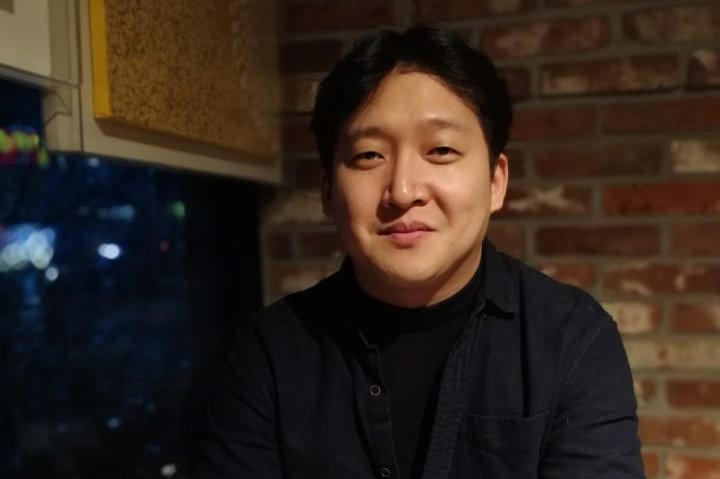1 of 7 | South Korean documentary director Steve Choi released a film last year at the North Korea Human RIghts International Film Festival about why North Korean defectors choose to leave South Korea, as well. Photo by Jennie Oh/UPI
SEOUL, March 22 (UPI) -- North Korean defectors, like many others, are trying to find happiness and their place in the world -- and some are leaving the Korean Peninsula altogether, the director of new documentary said.
Steve Choi's 98-minute film, Why I Left Both Koreas, takes viewers across European countries, shedding light on the lives of defectors who left both the North and South.
"I was curious why North Koreans would choose to leave a country that they'd dreamt of and risked their lives to escape to," he told UPI.
Government data show the number of North Korean defectors disclosed to South Korea hit more than 30,000 by 2016, up by more than three-fold from the previous decade. However, at least 2,000 are believed to have left the South to seek asylum in a third country, the director said.
In order to be granted refugee status, defectors would have to lie on application forms that they did not initially settle in South Korea.
"Why revert to uncertainty and risk? Most defectors who up and leave the South cite their failure to 'break the glass wall,'" Choi said.
A 2015 survey by Korea Hana Foundation found six in 10 North Korean defectors were dissatisfied with life in the South due to economic difficulties. Of the 2,444 respondents, 42 percent found it hard to adjust to the local culture and 31 percent said they faced discrimination.
Once North Koreans enter the South, they are screened by government authorities before undergoing three months of resettlement education to learn the basics of living in a capitalistic society. After training is complete, they are entitled to up to five years of government protection and subsidies for housing, living support, transportation and employment grants.
However, even with government support, Choi says defectors are overwhelmed by the rapid pace of life in the world's eleventh largest economy.
Even those born and raised in the South grapple with chronic unemployment, job instability and the intensity of competition in every aspect of society.
"From when we're young, we're told to study hard, go to a good university, get a good job, and a good apartment in a good neighborhood. It just always becomes a competition," Choi said.
"They start the race when we're already three or four rounds around the track and it's so obvious they will fall behind," the director quoted an educator in his film as saying.
Employment grants and vocational training programs do little to help defectors, who mostly end up taking low-paid, labor-intensive jobs, Choi said.
The average monthly wage for North Korean defectors was $1,445 in 2015 -- well below the $2,149 earned by South Korean citizens, the KHF survey shows.
"Many defectors I met, they hardly sleep," Choi added. "They're putting in more time and energy to earn money so that they won't be too behind South Koreans."
Citing a middle-aged defector he interviewed in his film, Choi says North Korean defectors easily fall into pyramid schemes or become involved in scams as they seek shortcuts to acquire wealth.
However, they have not attracted huge sympathy, as many of them are believed to have committed some crime or misconduct
The director admitted this unfortunately is the case for many defectors who decide to leave the South, including some of his interviewees, who were jailed for embezzlement or were accused of fraud.
"They're not what you would call role model citizens but there are more of those who committed some kind of crime or scam and are choosing to escape," he said.
Choi says rather than focus on the misdeeds, society should question what drives some defectors to lapses in judgment.
"If they could take on better jobs or were provided better support -- more relevant programs during their education, for instance -- I'm sure things could have been different for many of them," Choi said. "They do have designated officers who call them once in a while but my interviewees say it's more of a security check-up or a form of monitoring, rather than personal guidance and support."
It's also the lack of balanced media coverage on defectors that swings from one extreme to the other -- survivors or media darlings on one end, to victims of school bullying or troublemakers caught up in financial scams.
"They are always depicted in a certain frame by the media which consolidates preconceptions that are hard to break," Choi said.
"And I think they want to prevent that for their children. But again, it's another vicious cycle. Even for those who are born in South Korea, because of their North Korean parents or North Korean roots, they face prejudice."
As refugees in a foreign land, the defectors Choi met in Europe still face language and cultural barriers and struggle to find jobs. But they are also making their own way in the world -- a man running his own business in London, a couple raising three children in Germany and a young woman developing her own fashion label in Milan.
"That's not something people here would expect from North Koreans. [In the South,] we tend to pass judgement that they can't, even before meeting them," he said.
There, they are just one of the minority groups integrating into a wider society, as individuals, not defectors or second class citizens.
This is how South Koreans should view them, he said, stressing that is the way to ultimately "break the glass wall."
Choi says the defectors he met abroad were content -- perhaps more so than the average South Korean -- no longer a part of the rat race.
"In a sense, they're better off."















